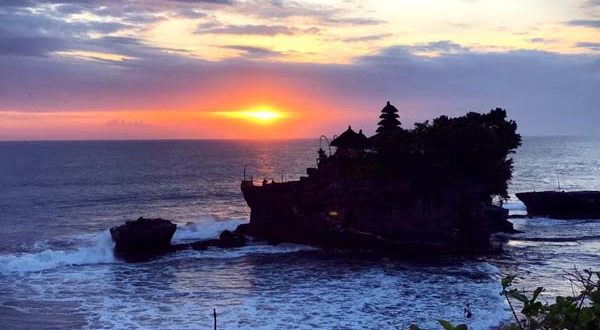Bali welcomes its selection by the National Government to serve as a “pilot project” to formulate standard operational procedures (SOP) for protocols connected to the Indonesian Government’s commitment to Cleanliness, Health, and Safety (CHS) as a way of restarting tourism.
The Provincial Government of Bali, in response to its selection for the CHS pilot project, remains optimistic that it will be ready and able to welcome both domestic and international tourists.
As reported by BeritaDewata.com, Bali’s Deputy-Governor reiterated the Provinces eagerness to pioneer Indonesia’s restart of the tourist industry by serving as the “trial run” or “pilot project” for CHS during an interview on Metro TV’s Town Hall Meeting – “The New Style of Tourism” broadcast on Monday, 20 July 2020.
The Deputy-Governor, Tjokorda Oka Artha Ardana Sukawati (Cok Ace), explained that the Province of Bali has carefully considered the commencement of local business activities on 09 July 2020 with strict health protocols following a major religious ceremony held at Pura Besakih 3 days before. The decision to slowly reopen its doors to the “new normal” was made, Cok Ace said, after viewing the conditions in the field, and careful coordination and intensive meeting between all the regencies and the City of Denpasar.
To elaborate and clarify steps underway to strengthen preventative protocols against COVID-19 in Bali, Governor Wayan Koster published a circular memorandum that established detailed cleanliness standards in public areas across 14 separate sectors.
“In Bali’s tourism sector, the level of preparedness is even more pronounced. In addition to following regulations and SOPs set by the Government, the tourism sector also took the initiative to conduct independent assessments to ensure the Island’s tourism industry is truly prepared to welcome tourists,” Cok Ace said.
The Deputy-Governor said that businesses who fulfill the standards are issued competency certificates to draw the public’s attention to Bali’s tourism industry and provide travelers with the peace of mind needed to take a holiday.
Also participating in the METRO TV Broadcast was the Coordinating Minister for Maritime Affairs and Investment, Luhu Binsat Pandjaitan; the CEO of Tiket.com George Hendrata; the chairman of the Indonesian Hotel and Restaurant Association (PHRI) Hariyadi Sukamdani; and the chair of the Indonesian Association of Travel Agents (ASITA) Nunung Rusmiati.
Deputy-Governor Cok Ace praised how Bali was handling the COVID-19 pandemic. He said the number of COVID-19 cases was sufficiently under control, with a low fatality rate of only 1.58%. Bali’s comparably low rate of infection and mortality he attributed to the excellent cooperation between the provincial Government and Bali’s traditional villages. Adding: “We are working with the traditional villages to regulate the community with various sanctions imposed by village leaders against those failing to keep established rules and protocol. In general, the Balinese are obedient so that we can reduce the number of cases.”
The central and provincial governments are also imposing sanctions and penalties on members of the public, failing to adhere to rules and regulations. The Deputy-Governor mentioned how a foreign national conducting a mass yoga practice during the pandemic was deported from Indonesia for two years.
The Governor of Bali has also issued a circular memorandum specifying requirements, including the need to hold a COVID-19 negative certificate for foreign visitors wishing to visit Bali.
The supporting infrastructure to control and handle the pandemic in Bali has also been beefed- up. Cok Ace said the number of hospital beds had increased together with medical facilities’ ability to treat COVID-19 patients.
Earlier, the Coordinating Minister for Maritime Affairs and Investments, Luhut B. Pandjaitan, said the COVID-19 situation in Indonesia should be seen on a region by region basis. This is necessary because several regencies and provinces in Indonesia have had considerable success in handling the current pandemic and, as a result, are opening their areas to tourism. Adding: “Areas such as Bali, Jogja, and Bintan Island have been successful enough in dealing with COVID-19 permitting those areas to be reopened (for tourism).”
Real data provided by the Covid-19 Task Force for Mitigating COVID-19 has made it easier for tourists to decide where to travel. Based on this data, the Indonesian Government decided that domestic tourism would re-commence on 31 July 2020 and international travelers on 11 September 2020.
To ensure a smooth restart of tourism activities, Minister Luhut invited the Indonesian public to implement the various health protocols and be disciplined in cooperating to prevent the spread of the coronavirus. “Let’s obey wearing masks, keep a distance and wash hands, these are preventive measures, and steps considered to be able to build tourist confidence,” Luhut explained.
Luhut credits tourism as being a critical sector that can restart other areas of the economy. Small and medium-sized enterprises and the general public working from other sectors of the national economy can be stimulated by tourism.
Because of the importance of tourism to the national economy, Luhut praise the steps taken by Indonesia’s President to provide financial incentives to tourism companies.
